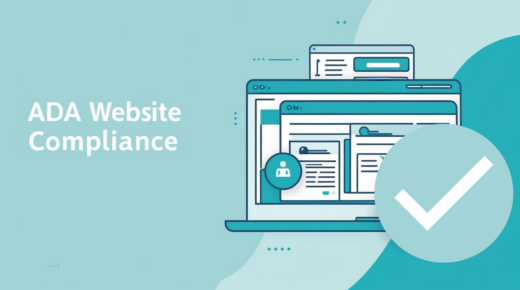When it comes to sensitive data, we are often asked about web security. The Ashley Madison leak is just another in a slew of reasons why we always tell clients, any data you out on the web is just that, “on the web”! Whether you are trying to have an online repository for documents, or are storing pictures or information, our rule of thumb is always, “if you can access it via the web, so can someone else.”
The Illusion of Complete Security
Yes, there are many types of internet security encryption methods, SSL (Secure Sockets Layer) connections, but the fact remains that the data you are trying to keep safe online is never completely safe! All data on the web, whether it’s data that is meant to be private or public, is accessed by browsers or persons using code to get into the system.
DO YOU NEED A NEW WEBSITE OR DOES YOUR WEBSITE JUST NEED AN UPDATE? USE OUR FREE WEBSITE OPTIMIZATION CHECKLIST TO FIND OUT!
👉 CLICK HERE TO GET IT NOW! 👈
Unveiling the Encryption Process
Even when you log in to your Facebook account, that is the same as a “secure data exchange” between your browser and Facebook’s servers. To simplify this concept, think of it this way. The email and password you enter are “encrypted”, or scrambled into a string of text that gets “descrambled” by the website’s server, which is a computer that “serves” the website to your computer. It is this encryption that is the basis for all internet security. Sort of like an orphan Annie secret decoder ring.
Vulnerabilities and Potential Threats
So, if there are people out there who “really” want your data, then they may do the work it takes to try and gain access to your data by trying to “crack the code” into the website’s database or by exposing a vulnerability in the code that accesses the database, causing their access to be top secret status which will allow them to access everything and anything the database is storing.
Lessons from Ashley Madison and Beyond
If you were a member of Ashley Madison’s cheater website, you submitted your information or “data” to their database. Your email address, your name, your town, etc. This data is pretty powerful. Not just because of the data itself, but because of the site that holds the data. When you sign up for any website, whether it be for good or bad, you are supplying information to a database over the internet.
Trusting Websites with Your Data
Even if you use super stealthy browsers, proxy servers, or whatever clever way you can think of to cover your tracks (clearing your cookies, clearing your history), the website still has the data. You have trusted them to keep your info safe, and more often than not they fail. Even huge corporations and top-secret government databases get hacked.
- Hacking of Government Computers Exposed 21.5 Million People
- Microsoft India Store Hacked, User Database Exposed
- Apple iCloud Hacked: Millions Of iOS 8.3 Passwords Targeted As Part Of White Hat Security Research Effort
If you take anything from this post, take this. If you give data to any website, you’re giving them the opportunity to have that data stolen. Sure, you may not be too worried about someone staying up late trying to hack you into your vacation photos on Facebook, but those who are members of Ashley Madison never thought this would happen. But it did. And they will now definitely think thrice before entering information on a web form!
FAQs
How can I ensure the security of my data on the web?
A: It’s crucial to be mindful of the nature of web security. While encryption methods and SSL connections provide a layer of protection, it’s essential to understand that if you can access data online, others may have the potential to do so as well.
What role does encryption play in internet security?
A: Encryption is the backbone of internet security. It involves scrambling data into a coded format that is later deciphered by the website’s server. This process is akin to an “orphan Annie secret decoder ring” and forms the basis for secure data exchanges between browsers and servers.
How vulnerable is the data I submit to websites?
A: Any data submitted to a website, whether for good or bad intentions, enters a database over the Internet. Even with efforts to cover tracks, such as using stealthy browsers or proxy servers, vulnerabilities in the website’s code or hacking attempts can compromise the security of the stored data.
Can even well-known websites be susceptible to data breaches?
A: Yes, even reputable websites and large corporations can fall victim to hacking. Recent examples, like the Ashley Madison leak and hacks exposing millions of users, highlight that entrusting data to any website involves a risk of potential data theft.
What lessons can be learned from incidents like the Ashley Madison hack?
A: The Ashley Madison incident emphasizes the importance of cautious data sharing. Users need to be aware that providing information to any website, regardless of its purpose, inherently carries a risk. It serves as a reminder that even seemingly secure platforms can face breaches, prompting users to think carefully before entering personal information online.






